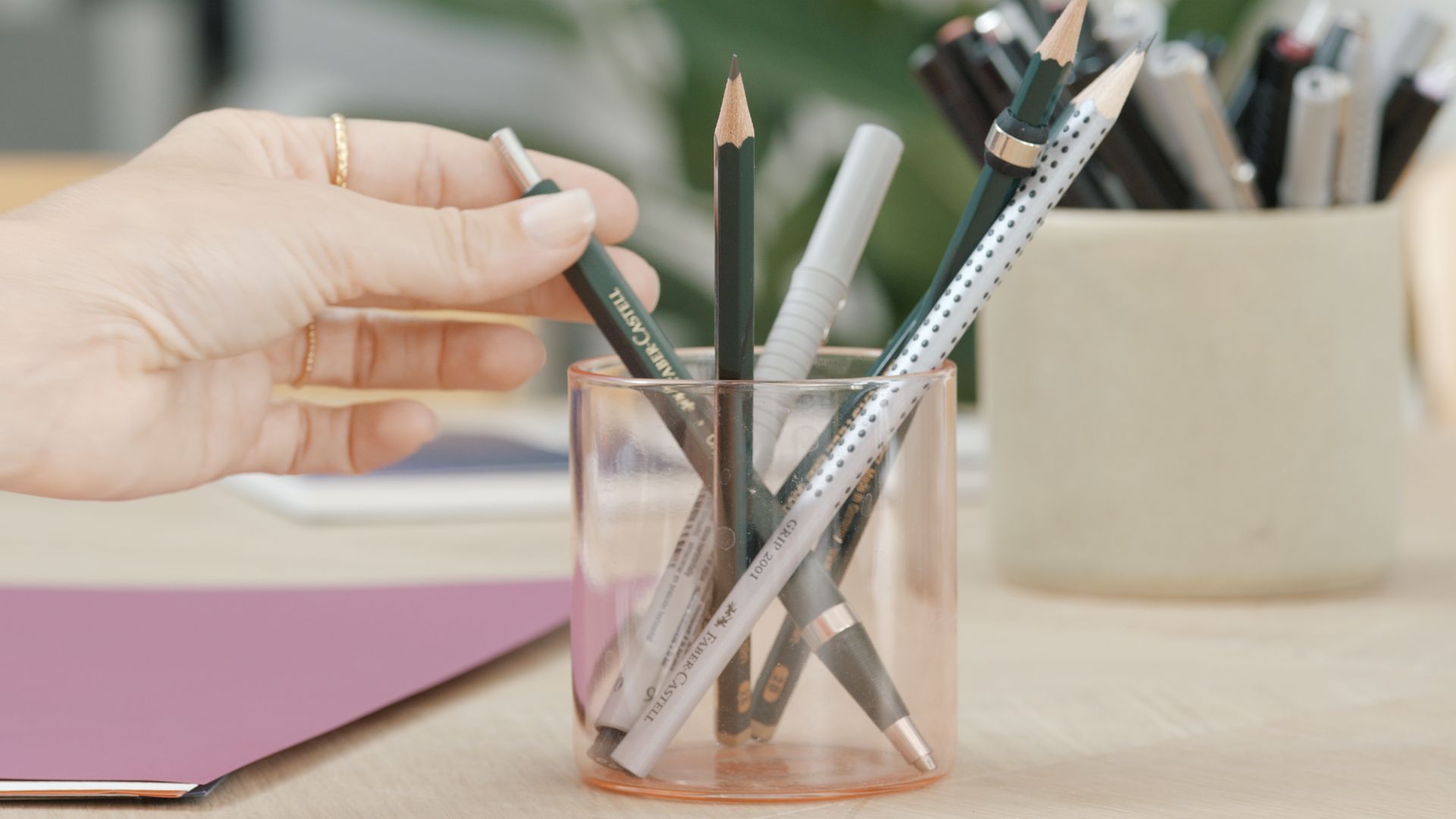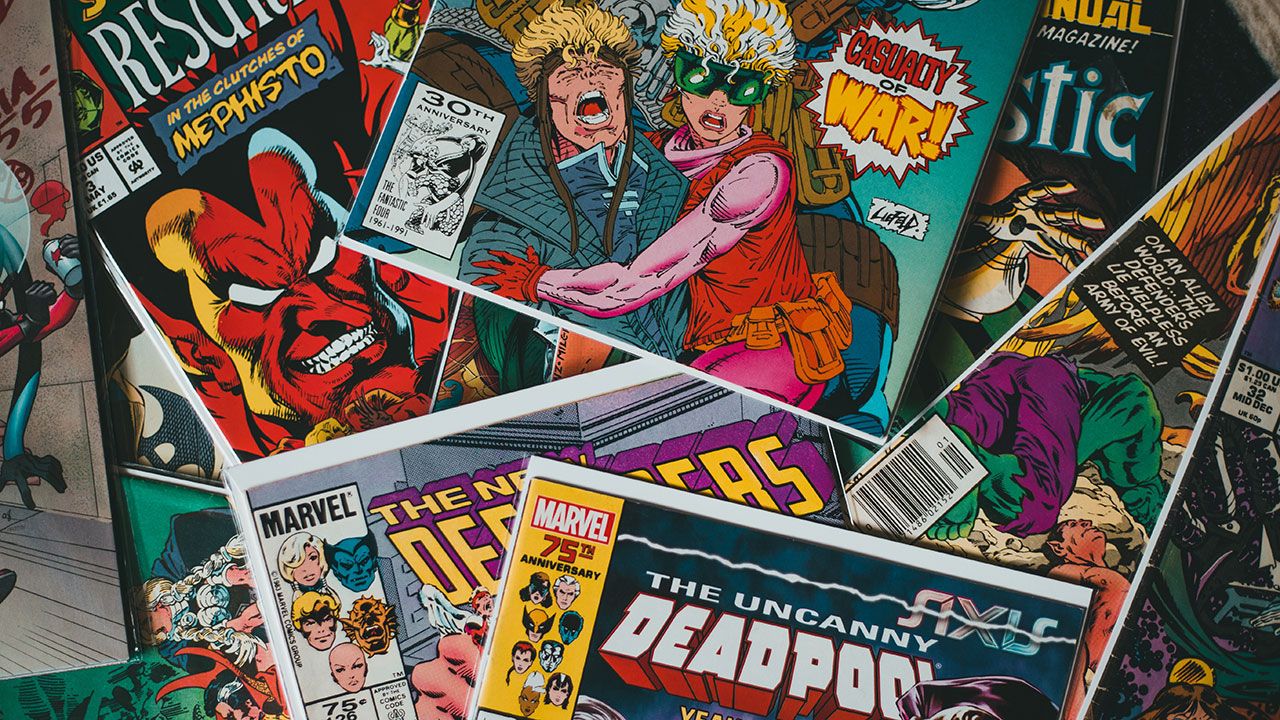
The great drawers who have marked their time
Which comic book to choose when it comes to determining who the best comic book artists of all time are? If we can think of the scriptwriters, the drawers have an essential part in the creation of a comic book. Thanks to their style, some of them have been able to make European comics evolve, and create a fresh impulse in this once confidential domain. You will find here a non-exhaustive list of comic book artists who have contributed to the popularity of the 9th art.
The cartoonists of the Franco-Belgian school.
The graphic style known as "the clear line", mainly used by Belgian artists, consists of delimiting each part of a drawing with a constant black line when inking, and then making flat areas of color, separated from each other by these delimitations. If today it is easy, with a versatile graphic tablet like the ISKN Repaper, to go from drawing on paper with your favorite pencil, to inking and coloring with a pen and graphic software, the comics artists of the time had to do all this work by hand, in order to create the most famous comics from this movement, and the world famous comic characters.
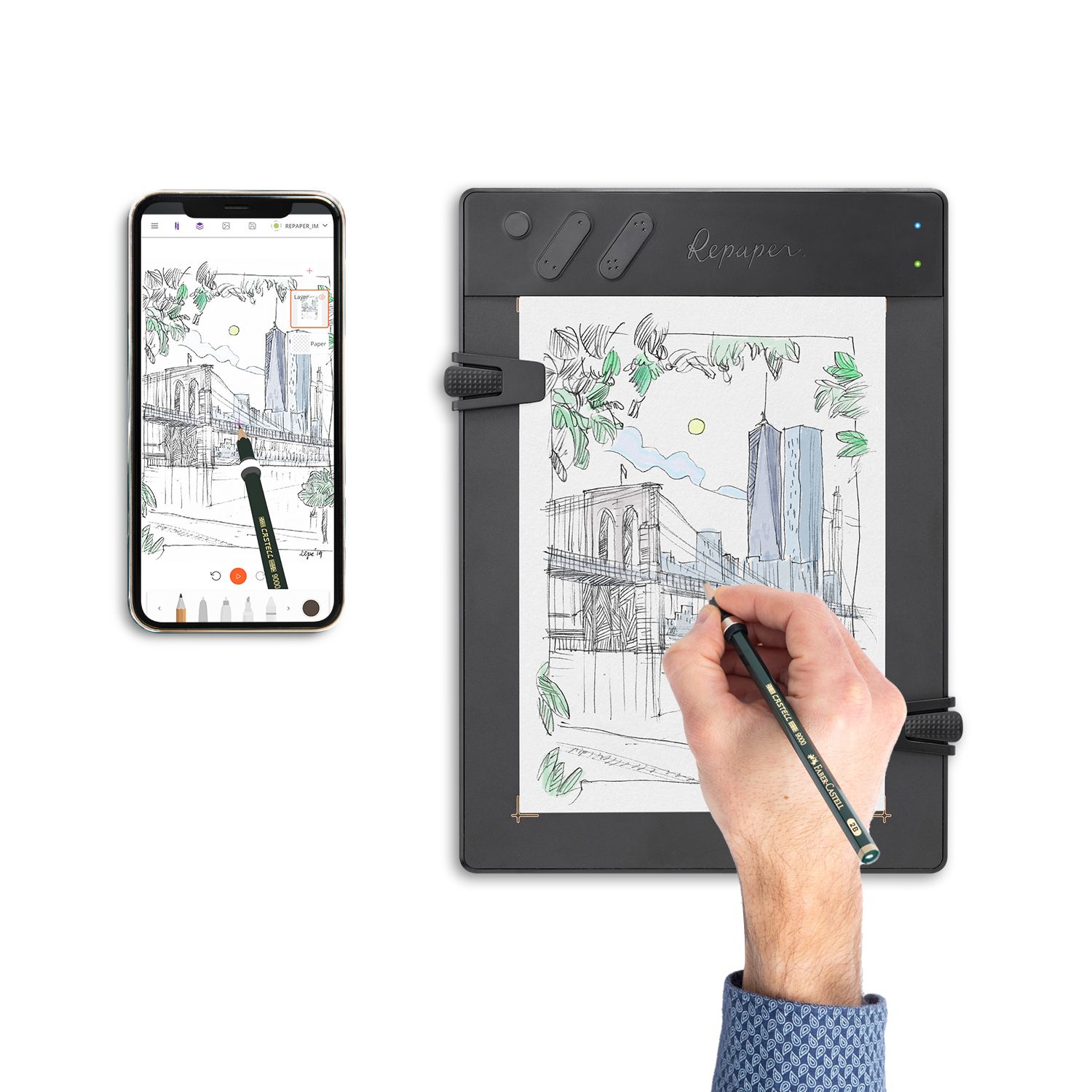
The Brussels school, serious and innovative.
Hergé: the most famous comic book artist
If the comic books existed long before his arrival, Hergé is considered by many as the father of the European comic book, and remains, even today, one of the most respected among the famous Belgian comic book creators. Among his most famous comic characters, we will obviously find Tintin, who will make the success of the daily newspaper Le Vingtième Siècle, where he will publish the first boards of this character, before releasing the first album of this comic strip known in the whole world. Self-taught, he will be recognized by his peers in the field, for having imported the American style of dialogue bubbles in Europe, but also for having democratized the style of the clear line, which will be adopted by many colleagues who will form the Brussels school, synonymous of the apogee of the Belgian comic strip.

Alain Saint-Ogan: a pioneering cartoonist
Great comic book artist, known by all in the comic book world, Alain Saint-Ogan is famous for being the creator of Zig et Puce, which will inspire many illustrators thereafter. In particular, he helped develop the famous "clear line" style, with regular inking lines and flat colors, a graphic method that will be widely used by Hergé and many other illustrators, even today. A true precursor, he will change, with his way of drawing, the way of conceiving the comic book, with a recurrence of the characters, and stories speaking as well for the adults as for the children.
Edgar P. Jacobs: the perfectionist cartoonist
Edgar P. Jacobs will be one of the masters of the clear line, who will have brought this graphic work to the limit of its apogee, by circling around the realism. With his careful drawings, with details much more important than in comics like Tintin for example, he will realize a masterpiece of the genre with the series of Blake and Mortimer. Close to the other artists of the clear line, he will develop with Hergé Le journal de Tintin, and will integrate his most famous characters, to make it one of the most expected meetings of the weekly. He will also bring the notion of cinema in the comics, with careful sets, and a marked use of light, which still remains a feat of perfectionism in the style of the Brussels school.

The caricaturists of the Marcinelle school.
Franquin: the cartoonist who democratized the "Big Nose" style.
Taking up the graphic style of the clear line, the Marcinelle school opts for a caricatural representation of the characters. Among the famous Belgian comics, we can find Spirou and Fantasio, Gaston Lagaffe or The Marsupilami. All these comics, often appearing in the rankings listing the 100 best comics of all time, have one thing in common: their creator Franquin. At the beginning, he took over the character of Spirou, in the newspaper of the same name, and developed a caricatured universe, with heroes having an unrealistic anatomy, with bodies not always well proportioned, with big eyes and especially a big nose, which will give the nickname of this particular style. His comics, with scenarios often mixing adventures and humor, will be so successful that they will have a faithful public, especially among young people, and a whole flock of Belgian and French comics artists will follow this so specific movement.
Jijé : the originator.
In the same way that Saint-Ogan was an inspiration for Hergé, Jijé was the father of the Marcinelle school, and will be the one who will launch Franquin, among other talented cartoonists, thanks to the Journal de Spirou, which he contributed to create and develop with the best youth comics of the time. Less known than other cartoonists who follow the same graphic style, he is nevertheless recognized in the field for having been innovative in the way of seeing the comic strip. But his work is not limited to young people, and his versatility will even lead him to draw more realistic drawings, as with the adventures of Tanguy and Laverdure, in the magazine Pilote. Jijé was above all a jack-of-all-trades, always ready to take on new challenges, which makes him a true legend in the world of comics.
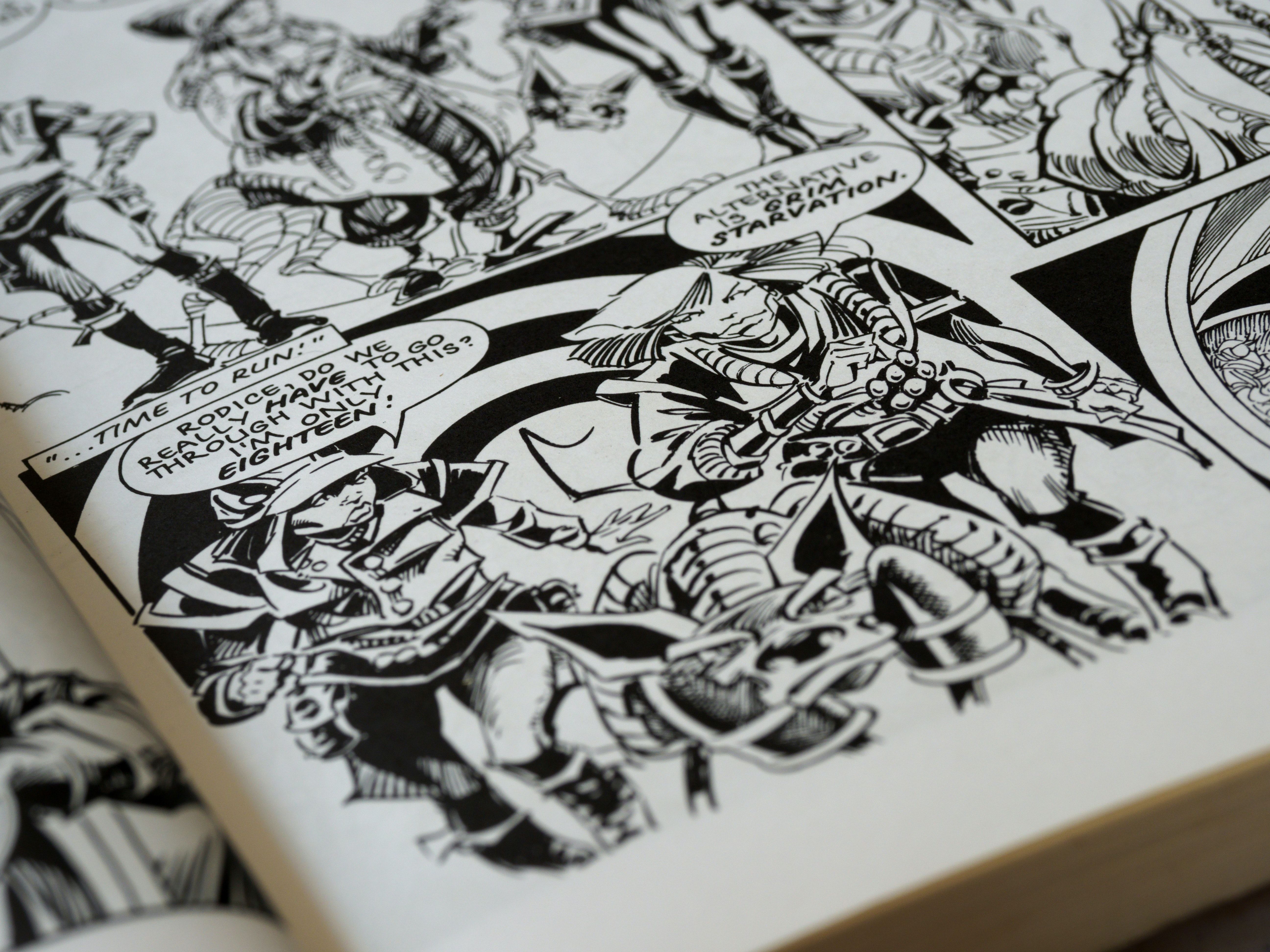
Albert Uderzo : The star cartoonist of the general public.
One cannot talk about the Marcinelle school without mentioning the man who created one of the most famous comic books in the world: Albert Uderzo. The one who started by working in cartooning, will show a style taking up the codes of this first experience. First in newspapers, then in Le journal de Tintin and in Pilote, among others, he created his most famous characters, Oumpah-Pah, but especially the trio Asterix, Obelix and Dogmatix, in Les Aventures d'Astérix, the best-selling European comic book series in the world to date. Even today, and despite his death and the end of his involvement in the stories of his flagship character, Asterix survives and is still, at each release, the most successful comic book of the year.
Cartoonists leading a more adult trend in comics.
Realism for a more mature drawing style.
Moebius: the master cartoonist
Moebius, or Jean Giraud of his real name, is famous for having drawn many of the most famous comics in terms of realism, with, among others, the successful sagas Blueberry and Incal. With a versatile style, from black and white, to clear line, to a more pencilled style with many strokes, he was a precursor in the way to put forward his characters, with little scenery, but especially by bringing a precision in the drawing, both in terms of proportions and shading. His drawing knows perfectly how to immerse the reader in an imaginary world, but appearing of a realism giving an impression that this universe is possible. This is how Moebius became famous in the Western, but also and especially by creating the best science fiction comics of the genre.
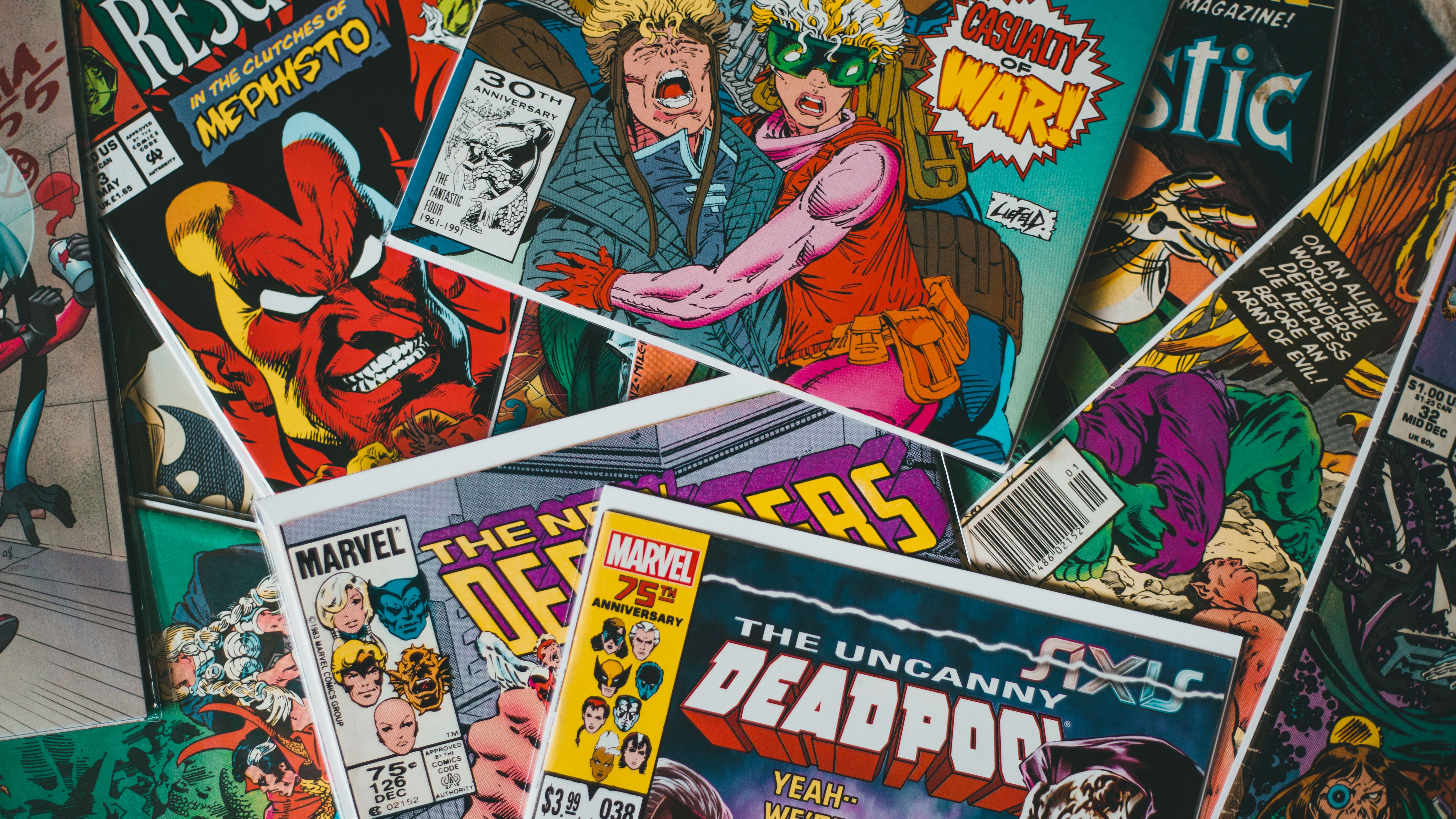
Hugo Pratt: an itinerant cartoonist.
If the Belgians and the French have been essential for the evolution of European comics, with Hugo Pratt, Italy has also had its say, this one having contributed to realize some of the best comics for adults, but especially the best Italian comics. In a neat, clean and realistic style, he worked for many newspapers and weeklies, before creating the comic that would follow him for many years: The Ballad of the Salt Sea. Initially shunned by readers, it will find its place in many publications, and will allow the development of the character of Corto Maltese, which will lead to the many albums of the eponymous series. Hugo Pratt has always been a great traveler, and all his works are borrowed from these experiences, which are felt in the way he draws, but also in the way he writes his characters. Indeed, besides being a drawer, Pratt was also a scriptwriter, which makes him one of the rare professionals of the comic book to wear both hats. In this, he was innovative and inspired many artists.
Cartoonists with an unclassifiable style
Although we have seen some of the most famous comic book artists, we could still mention many others, from Sampé to Gotlib, through Graton or Morris. Others, however, have a much more specific style, such as Marjane Satrapi, who has produced a series of autobiographical bestsellers with an inimitable black and white style, such as Persepolis, or Art Spiegelman, who is now considered, with his Maus graphic novels, to be the creator of the best current historical and political comics, with his original and anthropomorphic drawing style. We can also mention Claire Bretécher, who with Les Frustrés or Agrippine, brought with a simple style, almost childish, the comic book to the service of the social criticism.

Conclusion
All of these artists have brought a style that has now been adopted and hijacked by many comic book artists. Now, why don't you take a paper or a graphic tablet like the ISKN Repaper, to study the styles of these comics behemoths, and become a major name in European comics?

Discover more
The history of drawing: evolution of artistic techniques
Drawing has undergone many evolutions over time. Learn about the history of drawing and improve your creativity by drawing on the past.
How to create a comic book with a graphics-tablet?
If the Americans have their comics and the Japanese their mangas, when talking about comics, we first think of the great French-Belgian comics
How to Learn to Draw: Mastering Art through Practice
Learning to draw is a long process. Discover the tips to progress and learn drawing in a fun and motivating way!
Newsletter
Keep up to date with iskn news and events
Free standard delivery
for purchase over €80
30-day returns
on all products
Secure payment
with Stripe & PayPal
Pay in 3
with Alma
Customer service
chat with us
